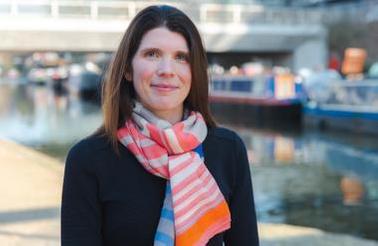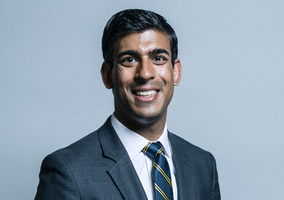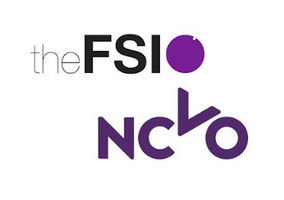This week, more than 1,000 small charities signed a letter to the prime minister, urging him to visit them “so you can fully understand the critical role these organisations play”.
The letter, delivered to Rishi Sunak yesterday, warns him of the pressures small charities are facing. “Every day, small charities are closing or reducing services. We are exhausted, burnt out and the mental health of our staff and volunteers is suffering,” it says.
It also asks Sunak to “discuss sustainable solutions” with the Small Charities Advisory Panel, set up earlier this year following the recent closures of infrastructure body the Small Charities Coalition (SCC) and specialist training provider FSI.
NCVO, which signed and promoted the letter, took on some of SCC’s services and is currently managing FSI’s assets as it works on a longer-term solution.
As such, NCVO took on a “slightly different role” this Small Charity Week, which used to be run by FSI. With funding from Lloyds Bank Foundation, NCVO recruited a team including Vic Hancock Fell and Wayne Murray to ensure this year’s programme of events did not “fall by the wayside”.
Sarah Vibert, NCVO’s chief executive, says SCC’s closure has left a gap in terms of “getting that voice of small charities around the table with decision-makers”, which is why, she says, the meeting requested in the letter to Sunak is crucial.
“It’s really important that government recognises just how reliant communities are on small charities,” she says.
‘More smaller organisations are closing’
Vibert became permanent chief executive of NCVO in March 2022 and her organisation took over the SCC’s helpdesk the next month.
NCVO now gets “a lot more enquiries about closures” to the help desk. “I think that just really shows the distress in that part of the sector,” she says.
She says charities of all sizes are facing challenges due to cost-of-living pressures following the Covid-19 pandemic and against the backdrop of “10 years of cuts to public services”.
“But the reason why it’s so acute for small charities is, if you look at the Civil Society Almanac, small charities are much more reliant on public donations as a source of funding,” she says.
Vibert says many more small charities are closing at present than previously, just at a time when they are facing increased need for their services.
“If you look at NCVO’s member data for the financial year that’s just ended, it certainly suggests that more smaller organisations are closing,” she says.
“So, when we've asked people for the reason they’re leaving NCVO, it is because they’re closing, which is not what we saw in earlier periods of time.”
£100m pledged to the sector
In a separate release this week, Lloyds Bank Foundation called on the government to clarify “when, how and to whom” the £100m it announced for charities in the spring budget would be distributed.
The Department for Culture, Media and Sport (DCMS) responded to say it aimed to open applications for the £100m funding pot this summer, as it was currently finalising delivery time frames and eligibility criteria.
Vibert says she has confidence in DCMS’ charities minister Stuart Andrew to ensure that the £100m reaches small charities and has worked “really closely” with him and other voluntary sector representatives in designing the fund.
“The minister has been a real driving force in terms of making sure that that £100m is getting out of the Treasury and getting into charity accounts as quickly as possible,” she says.
“The minister is a real champion of the small part of the sector and he was absolutely crucial in securing that £100m in the budget.
“And certainly when the scheme opens, which we expect it to later on this year, we expect that small charities that are delivering that critical cost-of-living support will benefit from that, because of course they’re the ones that are working directly in communities across the country.”
Future support for small charities
Besides the helpdesk, NCVO produces a bi-monthly newsletter, free webinars and online guidance for small charities.
Small charity support manager Amy Walton, who transferred to NCVO from SCC, “has been absolutely vital” in offering this support, Vibert says.
When FSI closed, NCVO also offered free membership to FSI members with an income of under £50,000, higher than its usual threshold of £30,000, “just to try and fill the gap again when they first closed”.
“But there’s loads more to do and loads more to develop in this space,” says Vibert. “We’re continuing really just to listen particularly on the helpline, and kind of look at what we need to do to respond and putting on new things all the time.”
The Small Charities Advisory Panel, which NCVO helped to set up, has met twice since its 14 members were appointed in March.
“It's still early days but as it continues to develop, we envisage that being really pivotal in terms of supporting us to develop new services,” says Vibert.
NCVO is discussing with the panel who should continue to provide the training courses and other online resources FSI used to offer.
“We don't necessarily think NCVO is a good home for them. NCVO doesn’t necessarily say small charities on the tin the way that the Small Charities Coalition did. So we’re thinking carefully with that advisory panel around how we make sure it’s really easy to access support that’s needed and can in effect play a bit of a convening and facilitating role, rather than necessarily delivering everything ourselves.”
Related articles












